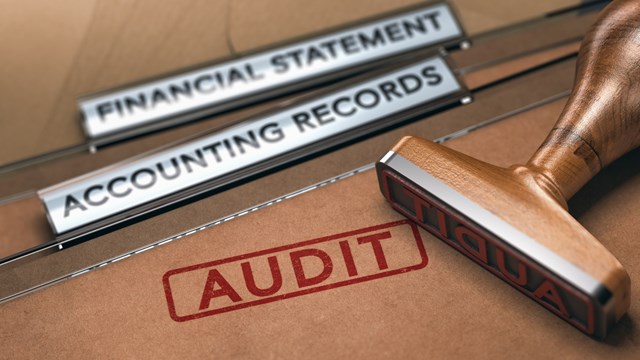
Unless you have a degree in accounting, your first board meeting could come as a bit of a shock. You probably knew board members oversee the finances of the corporation, but who knew there were so many records to produce and filing deadlines to meet?
Whether or not you have a management firm handling the affairs of the corporation, according to Jules Frankel, CPA and principal of the East Brunswick, New Jersey-based accounting firm of Wilkin & Guttenplan, P.C., “Everybody on the board, whether you are a financial expert or not, has a responsibility to understand how you come up with a budget for the building and to make sure that the monies that are being expended are appropriate for your building.”
In other words, you’ve got to know what’s in the books and reports of the corporation. And really, you should have some idea of what forms need to be filed with whom and when to file them and the penalties for failing to meet deadlines.
Looking at the Essentials
The Financial Statement: Everyone knows a corporation must issue a financial statement, typically audited by an independent accounting firm. And every building complies, right?
“Some do not,” says Victor Rich, a partner with RSM McGladrey, a Manhattan-based financial consulting firm. “A smaller building might want to take a chance, just to save a couple of bucks.” Problem is, “they would get into trouble if something came up—the board could be deemed negligent.”
A small building might decide to do it themselves. But, warns Rich, “Suppose the management company was stealing, or the treasurer. An audit might’ve picked it up a hell of a lot more readily than a non-audited report.”
Another reason to get an audited financial report is that they are required by law to comport to GAAP (Generally Accepted Accounting Principles), which include providing estimated expenses on major projects the building is likely to execute.
The financial statement typically presents the corporation’s income and expenses over the previous two years. It will show at a glance whether the income from maintenance fees, commercial rents and other sources is enough to cover its operating expenses. For one thing, that will help the board determine whether shareholders’ or association members’ fees are high enough. If deficits have been balanced by temporary income streams, like flip taxes, that would indicate it is time for a raise in monthly maintenance.
The statement should trace monthly assessments that were levied to cover specific projects in the building, spelling out how long they were meant to last and how they are doing in paying down the expenses on those projects.
In a co-op, the statement will include details on the building’s underlying mortgage, including how much the corporation owes and the interest rate it is paying.
The statement gives the amount of cash in the reserve fund, which will help the board determine whether there is enough to cover scheduled capital projects and emergency repairs.
The board should be sure the read the footnotes in the audited report, which details such items as tax abatements that are expiring, any pending litigation which could incur legal fees, major projects executed and planned, and approved assessments.
Financial statements, which provide a running history of the corporation, should be kept forever, advises Rich.
Tax Filings:The other key document is the annual tax return. Estimated New York City corporate tax filings are due quarterly, by the 15th of March, June, September and December. There are generally no federal taxes as they are erased by the building’s depreciation. Missed deadlines incur interest and penalties.
City taxes need to be paid up in total by March 15th. According to Neil Sonenberg, C.P.A with the accounting firm of Rosen Seymour Shapss Martin & Company LLP, “If you foul up the quarterly estimated payment, then you are looking at interest, but if you don’t pay 90 percent of the full amount by March 15th, you get hit with a 25 percent penalty.”
It’s essential to get an experienced accountant to file tax returns. According to Carole Newman, C.P.A, of the accounting firm Newman Newman & Kaufman in Syosset, Long Island, “If you hire an independent accountant, there shouldn't ever be a late filing. The accountant provides the estimated quarterly payments, the management company pays them, and by the time the tax return is ready to be filed, the money is already paid in.”
Real Estate Taxes: One area in which co-ops and condos differ is in their real estate tax accounting. Co-op corporations pay real estate taxes for the shareholders whereas in condos they are paid by the individual unit owners directly.
Real estate taxes are paid quarterly from the first of the year. Failure to comply with real estate tax deadlines can have serious consequences. According to Michael Berenson, president of AKAM Associates, a New York City-based management company, “One of the most extreme penalties occurs if a building doesn’t file its Real Property Income and Expense with New York City,” says Berenson. “When that happens, the city will refuse to process that building’s certiorari appeal [a challenge to the city’s assessment of the value of the property, a common filing], which could have far-reaching financial consequences for the delinquent building.”
Co-ops must send a letter to all shareholders after the first of the year informing them of how much the corporation laid out for them during the year. In February they need to send a 1098, which proves the amount of their tax deduction to the IRS. Each shareholder’s tax equals the total tax for the building, divided by the number of share in the corporation, multiplied by the individual’s number of shares.
The annual letter should also include the capital improvements for the year. Capital improvements raise the tax basis on each apartment, so when it is sold, the gain is less, which reduces the taxes. “A lot of co-ops don’t put that in the annual letter,” observes Rich. “If you can’t prove that your basis went up your taxable gain will go down.”
Be sure to include the co-op’s federal identification number on the 1098s, warns Sonenberg. “We’re finding that some of these co-ops do not have the 1098s fully filled out and the government comes back and fines you $100 for each 1098.”
On the subject of taxes, if your building benefits from any sort of tax abatement program, the government demands periodic, usually yearly, financial statements.
While tax audits look back only three years, most accountants advise keeping those records for at least seven years.
Fannie’s Getting Tough
There is another reason to keep tight budgets and records to prove it. After the losses they suffered, famously, during the financial crises, Fannie Mae has implemented a whole new level of stringent rules regarding building financials.
Fannie Mae buys up mortgages held by apartment owners, many of which have been packaged together by banks with a pool of other mortgages. Unless the building in which the mortgagee resides meets its standards, it will return the mortgage back to the bank and the unit owner will be lucky if their mortgage doesn’t get lost in the shuffle.
Or worse, your building could get rejected by Fannie Mae. According to Steven Beer, C.P.A with the Manhattan accounting firm of Czarnowski & Beer, “The building has to meet the guidelines, otherwise Fannie Mae won’t buy the loans in your building. You don’t want be the only building that isn’t Fannie Mae-qualified.”
If one of your owners finds a sale has been canceled because Fannie Mae hasn’t qualified your building, warns Beer, “the unit owner will call up screaming, ‘I’m about to lose my sale,’ or ‘I can’t refinance.” A lawsuit could ensue.
Keep All Records
In addition to certified financial statements, the corporation’s permanent file should include board minutes, the certificate of incorporation, the original prospectus and all amendments. Sonenberg recommends boards “keep all closings that have taken place in the lifetime of the building on microfiche.”
While it is not required, he recommend boards “keep on hand the reserve fund reconciliation, dating back from the sponsor’s initial time, from date of inception—and the capital cash account, also from the date of inception.”
The board should keep copies of checks or bank statements as well as all invoices for monies paid to vendors. “What you mostly care about is what money came in and what you spent money on,” says Frankel. “Scan the check register to see which vendors you recognize—see if anything pops out.”
Bank statements should be examined monthly by a few sets of eyes. “The bank statement should not go to somebody who signs the checks,” advises Rich. “If the treasurer signs most of the checks, then it should go to the president.”
Keep the invoices on-site so the president or treasurer should be able to easily investigate anything questionable. Saving invoices for eight years is a good rule of thumb.
Most management companies will issue a monthly ledger detailing revenue and expenses. Boards should do a bank reconciliation, a process of comparing bank transactions with corporate accounting records.
While it is very rare, Frankel, who has been doing the books for buildings for decades, says, “I’ve seen examples of managers paying their own personal expenses—their health insurance premiums, their car lease payments. I’m not saying this is rampant but you have a responsibility to take a look and see where your money is going.”
All the Rest
For an extended listing of document filings and deadlines, see below.
Of course, if the corporation has the budget to have all bookkeeping and filing taken care of by a management company and accountant, there’s not much to be done except review their work regularly. But if the budget won’t allow anything but minimal outside help, the board should keep a checklist of all the items mentioned here and record when the tasks are accomplished.
In any case, records, or least copies, should be kept on-site. “When changing property managers, accounting records can just up and disappear,” says Beer. “Some kind of storage on the property is probably the best thing. Keep them locked up in a safe place somewhere you know the building can always get to them.”
Beer recommends accounting records or copies be transferred from the property manager to the building periodically. Records should be scanned and stored digitally, and in hard copy as well. For the utmost in safety, to protect them from a flood or fire, copies should also be stored somewhere outside the property.
Get an Education
A range of resources are available for learning how to manage the books and records of a co-op or condo. Some of the best include:
• The Cooperator, in addition to features on management in the monthly magazine, sponsors a yearly Co-op & Condo Expo. The next one is scheduled for April 16, 2013.
• The Council of New York Cooperatives and Condominiums (CNYC) has periodic educational programs, highlighted by a yearly educational Housing Conference.
• The New York Association of Realty Managers (NYARM) offers courses and monthly seminar workshops.
• The Federation of New York Housing Cooperatives and Condominiums (FNYHC) has a website with pertinent news and links.
• Accounting firm Czarnowski & Beer offers free monthly webinars on co-op and condo financial management.
Steven Cutler is a freelance writer and a frequent contributor to The Cooperator.
IMPORTANT DATES and TAX FILINGS
February: W-2 Forms, 1099's and 1098's
March: Tax certiorari protests.
April: Multiple Dwelling registration
June: Annual water/sewer charges (although most buildings pay quarterly)
September: Real Property Income and Expense Forms to NYC.
Quarterly (January, April, July and October): Real estate taxes, payroll taxes (941s and NYS-45s).
Quarterly: (March, June, September, December): Corporate tax filings or extensions.
Biennial: Statements for business corporations.
Every Five Years: Local Law 11 inspections and reports.
Yearly, Oct. 1-May 31: New York City heating season.
(Source: Courtesy of AKAM Associates)






Leave a Comment